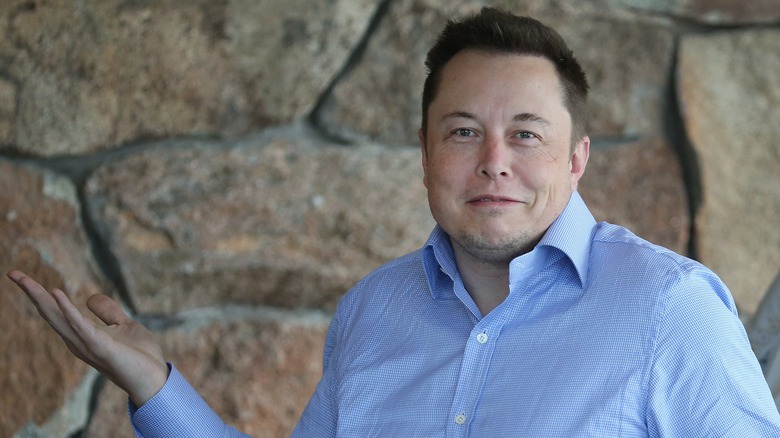Tesla Lawers' Autopilot Deepfake Strategy Not A Real Hit With Judge
In what can be called one of the most baffling turn of events involving Elon Musk and a court of law, Musk's defendants claim he can't recall making a controversial statement regarding a Tesla car's autopilot capability, and that it might be slanderous deep-fake. Santa Clara County Superior Court Judge Evette D. Pennypacker, however, is not buying into the "deeply troubling" defense — and has issued an order asking Musk to sit for a deposition under oath.
The case in question involves the fatal Tesla crash in which Apple engineer Wei Huang lost their life, with the family of the deceased alleging that it was the malfunctioning autopilot system that led to the accident. This isn't the first legal tussle of its kind for the automaker, as Tesla's driver assistance system is at the center of multiple incidents, some of which were fatal or resulted in serious injuries.
In the aforementioned case, the victim's family demanded that Musk should testify and be held liable for statements claiming that the autopilot system was even more reliable than a person. Musk's lawyers argued that he can't quite recall making any such claim, and that given his status as a target, the media cited in the case might very well be fake.
To recall, it was not long ago that Musk's Twitter account was hacked to shill for crypto. This time around, Musk's deep-fake defense looks weak at best — and downright false, since the evidence is in the public domain.
A losing public battle
Wei Huang's family cites a statement by Musk, in which he claimed that "a Model S and Model X, at this point, can drive autonomously with greater safety than a person." In response, as reported by Reuters, Musk's team countered that "like many public figures, is the subject of many 'deepfake' videos and audio recordings that purport to show him saying and doing things he never actually said or did."
Except Musk has been taped on video saying just that — speaking at the 2016 Code Conference (the relevant part starts at 1:19.28), the video itself was uploaded by the official (and verified) handle of Vox Media's Recode channel on YouTube. The judge, as per Bloomberg's report, remarked that just because folks like Musk are famous and easy targets, that doesn't mean they can say whatever and "then hide behind the potential for their recorded statements being a deep fake to avoid taking ownership of what they did actually say and do."
Musk's defense could hold some truth in 2023's generative AI era, where many remain unsure about AI-generated media. However, Musk doesn't have that luxury in this case, where his contentious remark is already out there for public viewing, from a credible source. The lawsuit is expected to go on trial in July, adding to Musk and Tesla's existing crop of legal woes.
